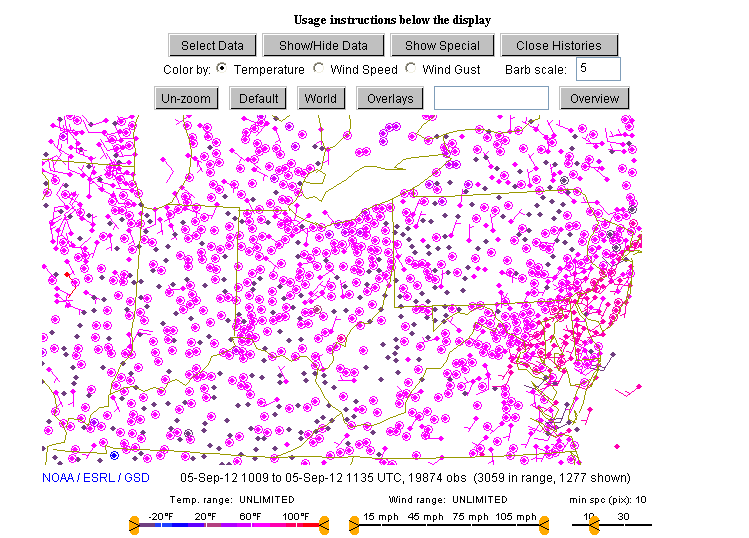Essential Tips for Setting Up and Calibrating Your New Weather Stations
Wiki Article
Checking Out the Various Types of Specialist Weather Stations for Accurate Information Collection
When it comes to choosing the proper weather condition station for data collection, the market supplies a selection of alternatives customized to different needs and settings. Allow's check out the nuances of these professional climate terminals to understand their one-of-a-kind capabilities and figure out the best fit for specific information collection demands.Digital Weather Terminals
In the world of meteorological instrumentation, digital climate terminals stand apart as sophisticated devices for exact data collection and evaluation. These sophisticated stations are geared up with sensors that record a vast variety of weather criteria such as temperature, moisture, barometric pressure, wind speed, and instructions. The data accumulated by digital climate stations is sent wirelessly to a central console or a computer system for real-time tracking and evaluation.Among the essential benefits of digital weather condition terminals is their ability to give high-resolution data with precision and dependability. This degree of accuracy is vital for various applications, consisting of agriculture, air travel, research, and emergency response. Additionally, electronic weather stations frequently include software application that permits users to imagine the information in various layouts like charts and charts, helping with less complicated analysis and decision-making.
Wireless Weather Condition Terminals
Structure on the capacities of electronic weather condition stations, cordless weather condition terminals supply enhanced convenience and flexibility in data transmission and tracking. By using wireless innovation, these weather condition stations eliminate the need for cumbersome wired connections, allowing for very easy installment in various locations. The wireless attribute makes it possible for real-time information surveillance from remote locations, offering meteorologists and weather condition enthusiasts with instant access to vital info.Wireless weather terminals normally include sensors that accumulate information on temperature level, moisture, barometric pressure, wind rate, and direction. These sensing units wirelessly transfer the data to a main console or receiver, where it is processed and presented for analysis. Some advanced cordless weather condition stations can also connect to the net, enabling users to access their weather condition data from another location using smartphones or computers.

Prosumer Weather Stations
What differentiates Prosumer Climate Stations from conventional consumer-grade weather condition terminals? Prosumer Weather Stations bridge the gap in between professional-grade and consumer-grade devices, using even more advanced functions and higher precision than typical home weather stations. These stations are created for climate enthusiasts, amateur meteorologists, and small companies that call for even more precise data than what consumer models can supply.Prosumer Climate Stations often include a larger series of sensing units to gauge additional meteorological parameters such as UV index, leaf wetness, and soil moisture. They also tend to have a higher level of toughness and integrity, making them ideal for lasting exterior usage in different environmental conditions.


Industrial Weather Terminals
Industrial Weather Stations, likewise known as meteorological surveillance systems, are specialized instruments created for durable and accurate weather condition information collection in industrial settings. These terminals are tailored to satisfy the one-of-a-kind demands of industrial procedures where exact weather info is critical for security, performance, and decision-making procedures.Industrial weather stations are outfitted with innovative sensors that can determine a large range of meteorological specifications such as temperature level, moisture, wind rate and direction, barometric pressure, and precipitation (Weather Stations). These stations are commonly ruggedly constructed to withstand severe environmental conditions normally discovered in commercial settings
One key function of commercial climate terminals is their ability to offer real-time data tracking and analysis. This enables industrial facilities to anticipate weather-related risks, optimize operations based on weather, and make certain the safety and security of employees and tools. In addition, commercial weather condition stations can be integrated right into existing commercial control systems for smooth information administration and automation.
Portable Weather Terminals
Unlike fixed industrial weather terminals, mobile weather condition stations offer flexibility and mobility for on-the-go information collection in different environmental settings. These portable devices are created to be quickly carried to different areas, making them excellent for area study, emergency response scenarios, farming, construction websites, and outside events.Mobile weather condition stations typically consist of sensors for measuring parameters such as temperature level, humidity, barometric stress, wind speed, and wind instructions. Some progressed models might likewise feature added sensors for monitoring rains, solar radiation, and UV degrees. Regardless of their small dimension, mobile weather terminals are qualified of offering accurate and reliable information comparable to that of larger, repaired terminals.
One of the essential benefits of mobile climate stations is their quick implementation and simplicity of arrangement. Overall, portable weather stations are invaluable tools for professionals calling for mobile, exact, and prompt climate information in view publisher site diverse settings.
Conclusion
Finally, expert weather condition stations come in various types such as digital, wireless, prosumer, industrial, and portable. Each kind offers unique features and capabilities for accurate information collection. Picking the appropriate weather condition station depends upon the particular needs and requirements of the user. By understanding the differences in between these kinds of climate stations, individuals can make enlightened choices to guarantee they obtain one of the most exact and reputable weather information for their objectives.Building on the capacities of digital climate stations, wireless weather condition stations supply enhanced ease and versatility in information transmission and tracking. Some progressed wireless climate stations can also link to the net, enabling try this customers to access their weather information remotely via computers or smart devices.
Prosumer Weather condition Stations bridge the void between consumer-grade and professional-grade devices, supplying more innovative features and higher precision than common home climate stations. Weather Stations. Generally, mobile weather stations are click this site invaluable tools for specialists requiring portable, precise, and prompt weather information in diverse setups
By recognizing the distinctions between these kinds of climate stations, people can make educated decisions to ensure they obtain the most precise and reputable weather data for their functions.
Report this wiki page